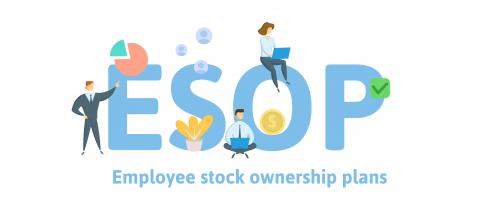
At the time of this writing, in autumn of 2020, our world has undergone a crisis like none other in our lifetime. COVID-19 reverberations have impacted all aspects of society beyond the spheres of health and personal life. Unemployment has been at an all-time high and the small business landscape, in New Hampshire as well as in the rest of the U.S., has been forever changed.
Prior to the onset of the pandemic, I began a research and community development project on Employee Stock Ownership Plans, known as ESOP. ESOP is a corporate classification. It is a business development strategy which elevates vested employees to employee owners.
Employees of ESOP-owned companies demonstrate higher productivity, engagement, satisfaction, and retention than workers at non-ESOP companies (peer companies). ESOP-owned companies receive tax benefits and reap greater profits than peer companies.
One of the most important benefits of ESOP-owned companies is that they ground the wealth within communities. Employee ownership models boost workers’ ability to build asset wealth, which in turn generates positive economic ripple effects throughout a community.
If a particular region became an epicenter for ESOP-owned businesses, that community could realize greater economic gains over time. Further, more community members would be able to achieve asset security, which would promote more opportunities for economic mobility for workers and their families.
ESOPs offer many advantages for businesses, employees, and communities—although those benefits do not come without related costs. ESOP transactions require significant investments in both time and start-up expenses, in addition to annual valuation fees.
Stability and guaranteed profits strengthen the case for an ESOP transaction. Thus, economically uncertain times can create an undesirable environment for most businesses to consider an ESOP transaction. However, ESOPs can be a solution to help rejuvenate New Hampshire’s economy in 2021 and beyond.
The need to attract and retain qualified workers to the state is critical. New Hampshire has a significant number of older adults in the workforce in comparison to other U.S. states; as increasing numbers of seasoned workers retire, new talent is needed. COVID-19 has brought a transition to remote work, which could lead city-dwellers to relocate to more scenic locations, such as New Hampshire. The promise of other desirable employment options could cement their confidence that they could build economic security in this state.
The post-COVID-19 world of work will look very different. We must reimagine business – what will that look like for your company? Consider that employees can become owners. Their efforts can be a foundation for shared success with the greater community.
In this blog series, I will be sharing more about what ESOPs are; myths surrounding ESOPs; and next steps for you to take if you are interested in exploring an ESOP transaction for your business in 2021. Continue to follow this blog series to learn more.
Alexandra Kirade is a social sector changemaker passionate about partnering with communities to help create societies where systems are reimagined to empower more people to thrive. Alexandra will graduate from the University of New Hampshire’s Carsey School of Public Policy in 2021 with a Master of Public Administration and a Master of Community Development Policy and Practice.
ESOP Association, "2019 ESOP Economic Performance Report" (2019) https://esopassociation.org/sites/tea-master/files/2020-06/2019%20EPS%20Report%20Digital.pdf
National Bureau of Economic Research (Eds. Kruse, D. L., Freeman, R. B. & Blasi, J. R.), "Shared Capitalism at Work: Employee Ownership, Profit and Gain Sharing, and Broad-based Stock Options" https://www.nber.org/books/krus08-1
National Center for Employee Ownership, "Employee Ownership: Building a better American economy." (2017) https://www.nceo.org/assets/pdf/misc/Employee-Ownership-NCEO.pdf
National Center for Employee Ownership, "Employee Ownership & Economic Well-Being" (2017) https://www.ownershipeconomy.org/wp-content/uploads/2017/05/employee_ownership_and_economic_wellbeing_2017.pdf
Rutgers University, Institute for the Study of Employee Ownership and Profit Sharing, "Building the Assets of Low and Moderate Income Workers and their Families" (2019) https://smlr.rutgers.edu/sites/default/files/rutgerskelloggreport_april2019.pdf
Brandeis University, Institute on Assets and Social Policy, "Employment Capital: How work builds and protects family wealth and security" (2013) https://community-wealth.org/sites/clone.community-wealth.org/files/downloads/paper-thomas-et-al_2.pdf
